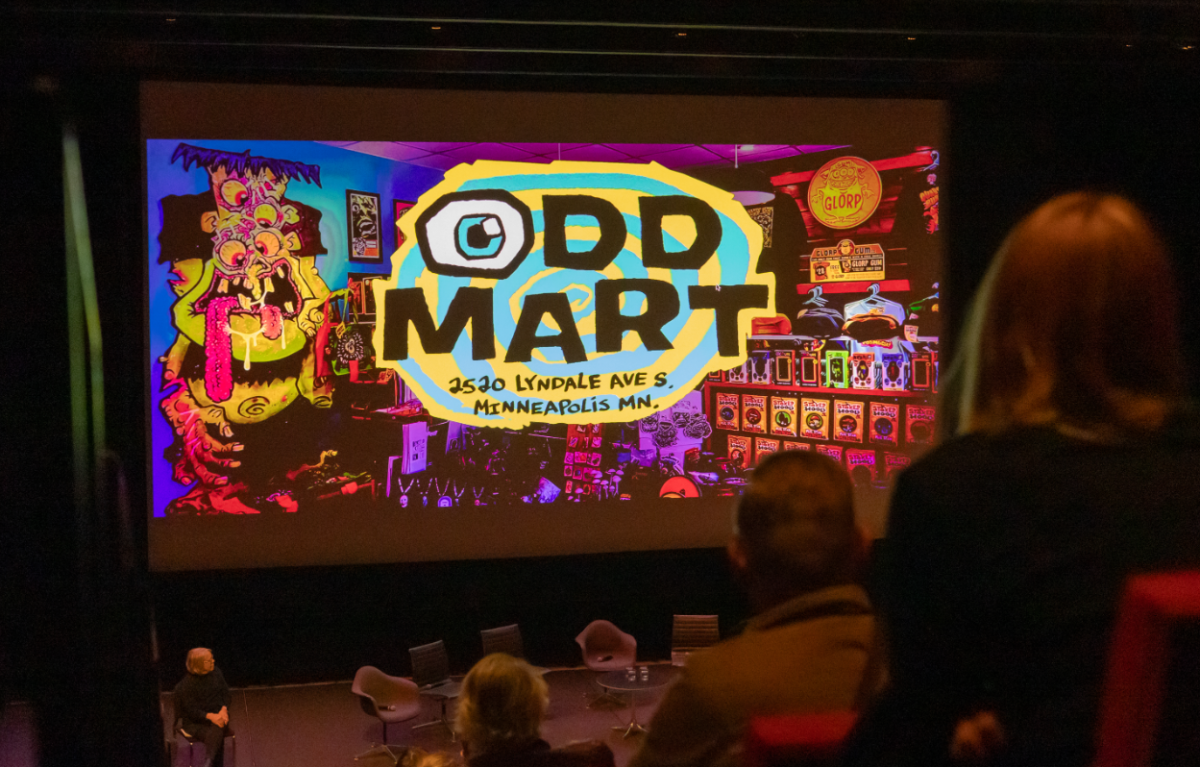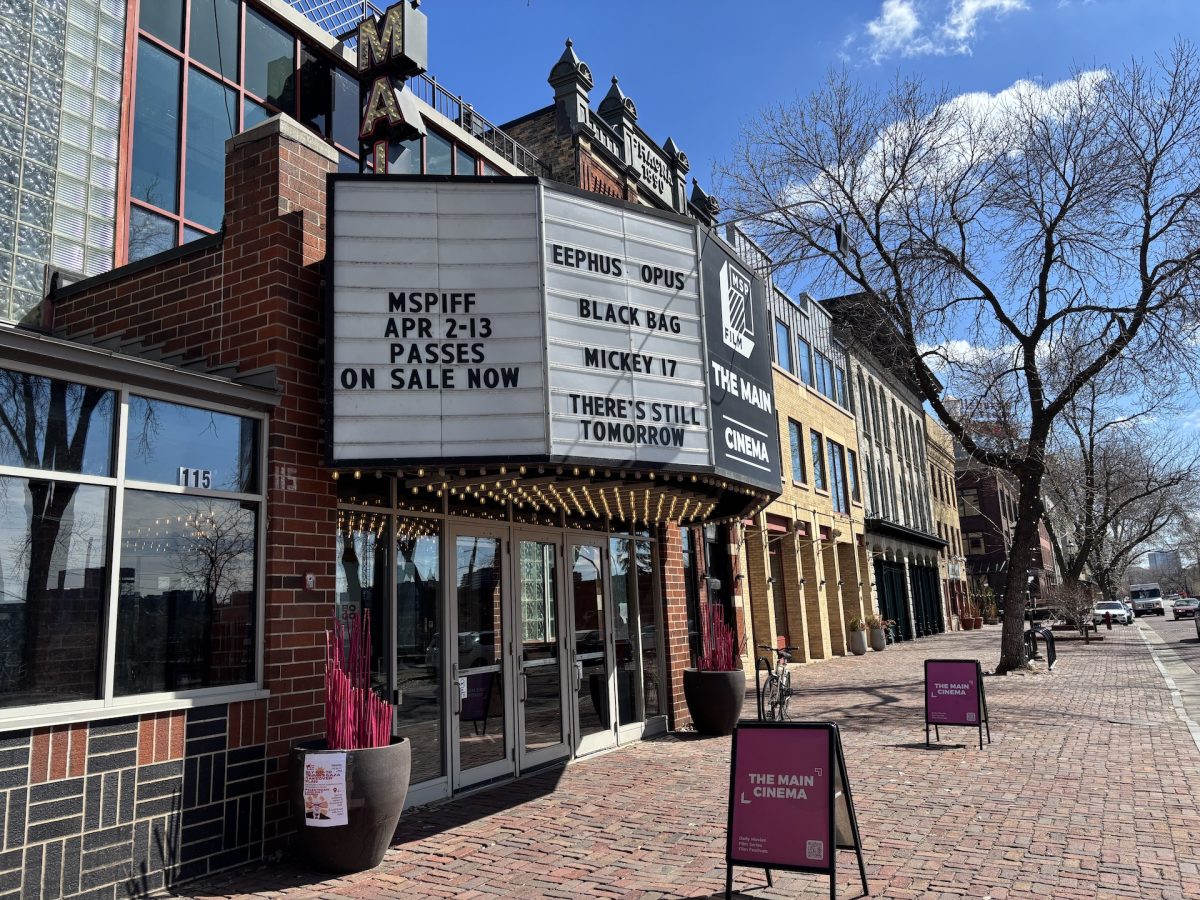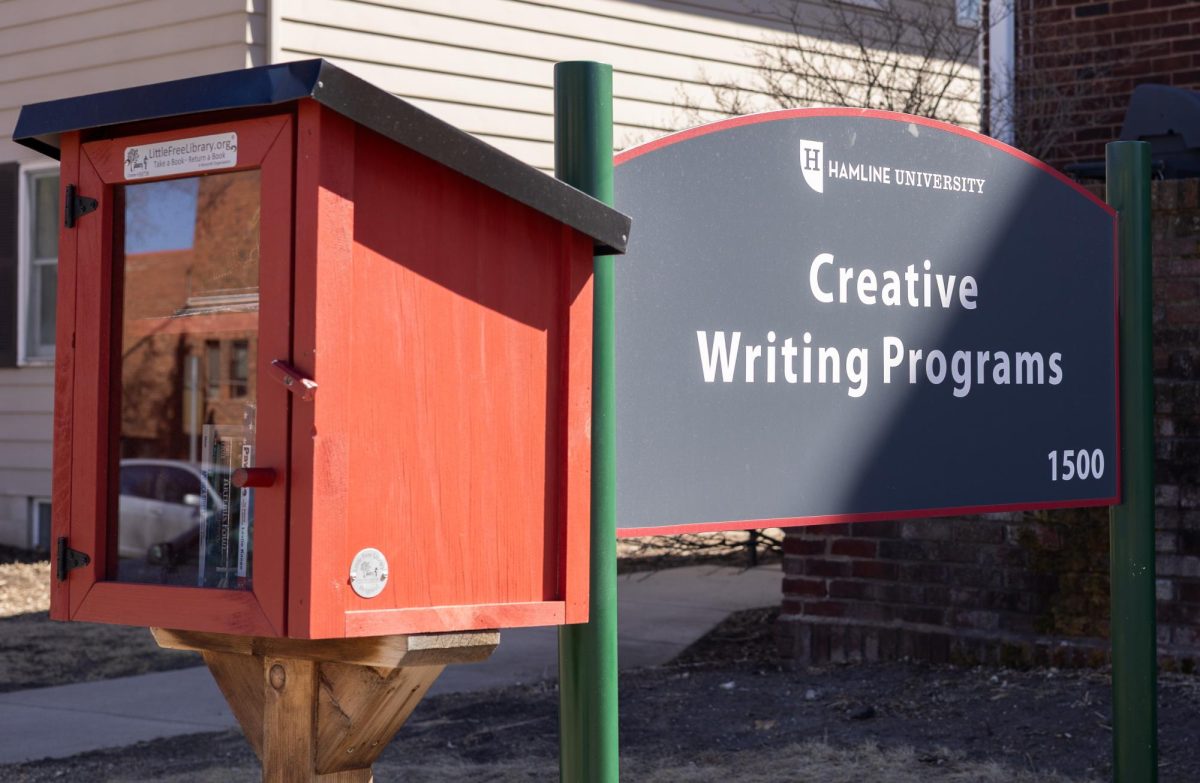Those who know anything about film theory know the name Laura Mulvey.
And those who know anything about Mulvey know about her work on the “male gaze,” which suggests cinema is, by its very structure, an exercise in patriarchal ideology.
For 12 years, the Walker Art Center has offered a refreshing annual departure from this repressive system.
It’s known as the Women with Vision film festival, and it provides the forum for a badly needed counterpoint to a medium dominated by, as Mulvey has chronicled, the voice and perspective of men.
Running Friday through May 21, the festival’s program includes narrative features and documentaries from female filmmakers based in the United States and abroad. This year’s theme, “Amid Chaos,” reflects the prominent conversations to be found in women’s works as seen in film festivals around the world.
“What I saw were women disrupted by the global situation,” said Sheryl Mousley, festival curator and University alumna. “They are making these really beautiful stories within this incredibly chaotic world.”
A global perspective
Traveling to the Cannes, Toronto and Rotterdam film festivals, among others, Mousley said, she saw this trend mostly in international films, from directors dealing with the recent violence and uncertainty of their societies.
“Amid this chaos, however, they’re still finding love and humanity, and the need for connecting to other human beings,” Mousley said. “They’re not just looking at the aggression but at the consequences of that aggression.”
This secondary theme of connection is in full force in Pola Rapaport’s “The Writer of O,” a film funded by a Guggenheim Fellowship that Rapaport said was only made possible because of Mousley’s letter of recommendation.
In this part documentary, part fictional recreation of the famous 1954 erotic novel “The Story of O,” Rapaport tracks down the work’s long-unknown author. Disguised for decades under the pseudonym Dominique Aury, the author was first outed in a report in The New Yorker magazine.
Mousley’s secondary theme of connection can be found throughout “The Writer of O.” First, Rapaport’s film represents not only her attempt to connect with an author she found fascinating but also chronicles the attempts of Aury to connect with her lover through writing a book he would find enticing.
“I’ve been wanting to do this film for a long time,” Rapaport said. “In this case, she was head-over-heels in love with an older man. She knew that he liked erotica and pornography, and she set out to write a book to reseduce him.”
Mousley singled out “The Writer of O” as a quintessential Women with Vision festival entry.
“I don’t know if a male writer would have ever taken on that story,” she said.
A 12th year of distinctive visions
Mousley said she has noticed a number of themes among entries in recent years. A few years ago, she said, the theme among international filmmakers was one of “international migration.” She also said that if she were curating the festival today, rather than months ago, the theme would now be “observing the polarity shift” in the world’s superpower, as attention drifts away from the United States and toward China.
Mousley also scheduled a special series in the festival, titled Working Girls. That series, screening May 18-20, showcases a wide array of films between 1918-86 that depicts women in the working world.
Beyond the main series, Mousley scheduled a healthy balance of works from national, international and Minnesota artists. The Girls in The Director’s Chair series will feature dozens of works from young women across the state.
In addition to Rapaport’s film, Mousley noted several films among the festival’s highlights.
She said she loves Miranda July’s Sundance sensation “Me and You and Everyone We Know”; the Danish film “Brothers,” which “explores what is good, bad and honorable” in times of war; and Debra Granik’s “Down to the Bone,” which examines “more the personal than the political change” of a struggling drug addict.
Mousley said she found herself absorbed by Laura Waddington’s “Border,” one of the festival’s shorts, which is about the desperate attempts of refugees in crossing the English Channel Tunnel atop high-speed trains.
“It’s a political story told in a beautiful way; a lush, expressionistic painting and a substantial text,” she said.
Then again, it’s just one of the substantial, unconventional texts that will be lighting up the Walker during the next two weeks.
Mulvey would be proud.







